Georgian Dream opens new parliament in apparent breach of constitution

Georgian Dream inaugurated the 11th parliament on Monday without any opposition members in attendance, amidst ongoing street protests and in apparent violation of the country’s constitution.
On Monday, the ruling Georgian Dream party unilaterally validated the mandates of all 150 MPs, ignoring the explicit dissent of 61 opposition members who were absent, some of them protesting outside the parliament alongside other demonstrators in Tbilisi.
A number of the country’s top legal and constitutional experts have stated that to do so while the results of the election were being challenged in the Constitutional Court represented an outright violation of the constitution.
Bidzina Ivanishvili, Georgian Dream’s founder and honorary chair, who topped the party’s electoral list, made a rare appearance at the heavily guarded parliament building on Monday, taking the oath as an MP alongside other members.
The ruling party went forward with reconfirming Shalva Papuashvili as parliamentary speaker and fielding a new cabinet under the premiership of incumbent Prime Minister Irakli Kobakhidze.
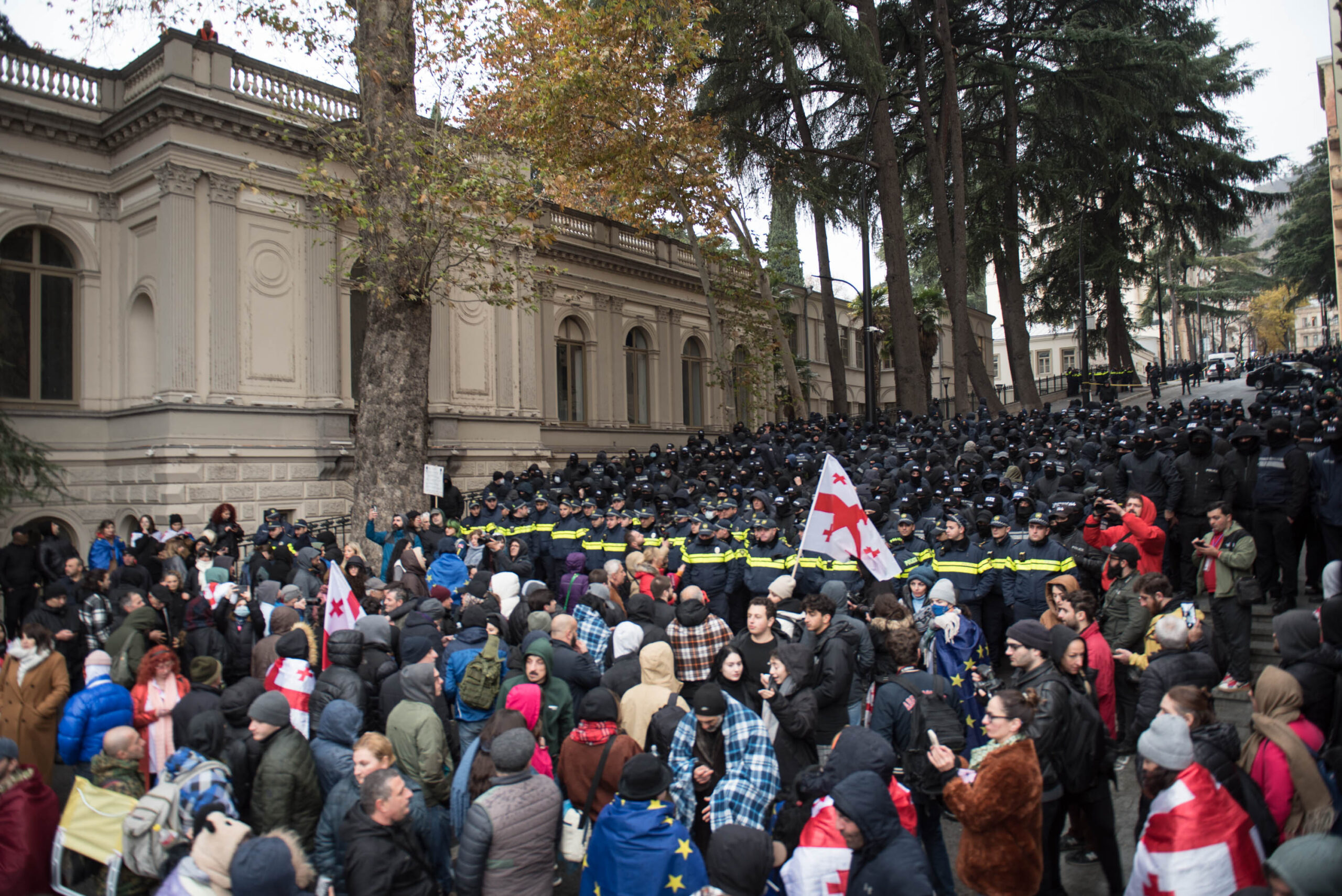
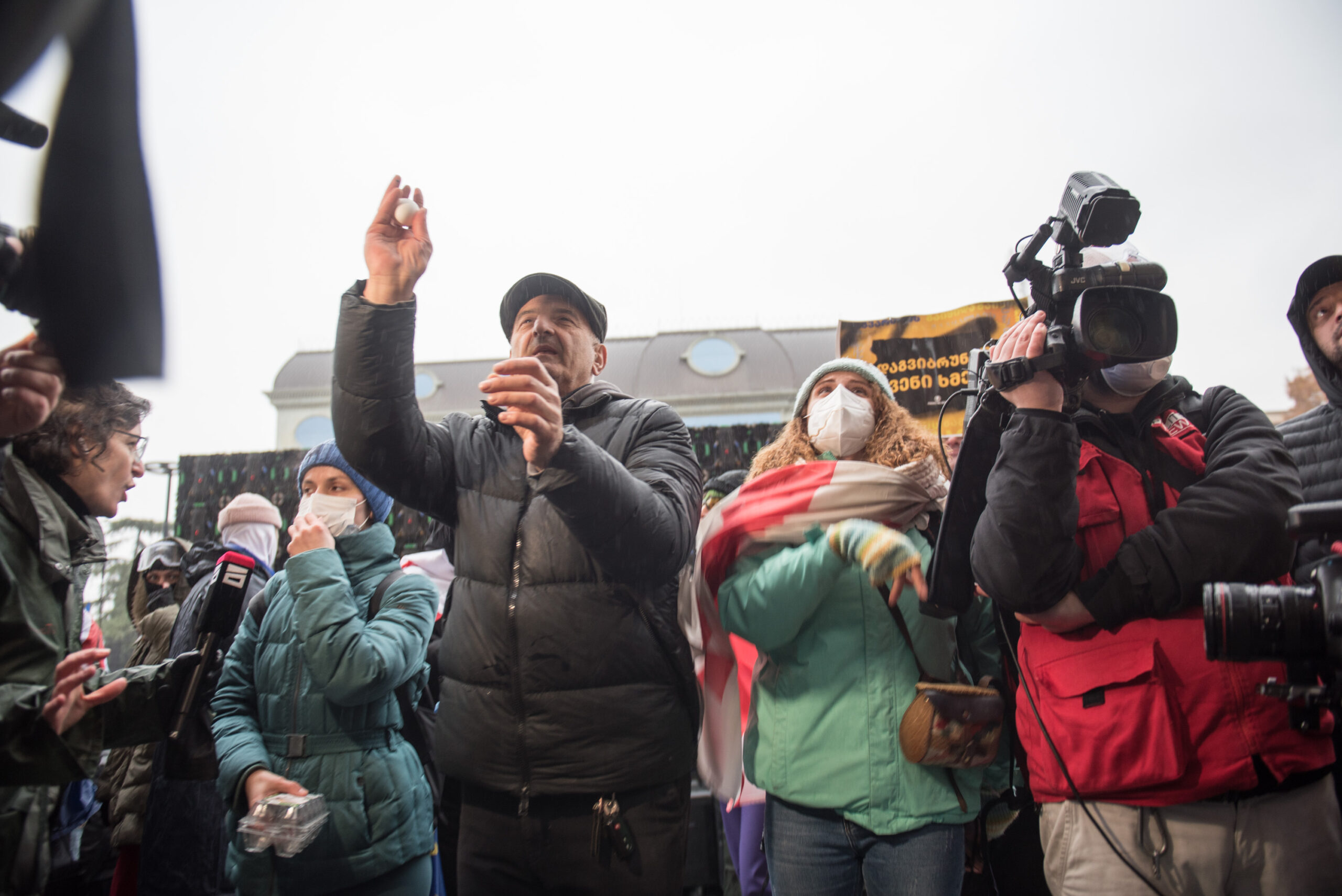
Earlier on Monday, Kobakhidze announced three changes for ministerial positions, naming Maka Bochorishvili as a prospective replacement of incumbent Foreign Minister Ilia Darchiashvili, nominating Anri Okhanashvili as new Justice Minister instead of Rati Bregadze, and proposing that Davit Songhulashvili take over as Agriculture and Environmental Protection Minister from Otar Shamugia.
Based on the contested election results and the resulting parliamentary composition, Georgian Dream holds 89 mandates and requires the backing of only 76 MPs to approve the new cabinet.
Incumbent majority leader Mamuka Mdinaradze was also reconfirmed to his position. Soon after, Mdinaradze announced that Ivanishvili, as well as his close confidant and former Prime Minister Irakli Gharibashvili, would soon relinquish their parliamentary mandates.
None of the four opposition parties that surpassed the 5% threshold in the official results of the October elections attended the launch of the disputed parliament, denouncing the proceedings as unconstitutional.
‘Severe violation of Constitution’
Several legal experts and constitutional lawyers have described the convening of the new parliament by Georgian Dream on Monday as a violation of the constitution, citing ongoing legal challenges to the official results due to the widespread violations documented during the election.
In conversation with OC Media shortly after Georgian Dream officiated the new iteration of parliament, Georgian constitutional lawyer Vakhushti Menabde cited official Georgian parliamentary rules and procedures to back up his argument.
Parliamentary regulations explicitly bar the interim mandate commission from submitting elected members for final confirmation if the legality of their election is being challenged in the Constitutional Court.
‘Parliament should have convened to allow the Central Election Commission to hand over the [electoral] documents to the parliament’s temporary mandate commission. The commission should have determined that the legitimacy of all 150 mandates was being challenged, and should have suspended the parliamentary session, resuming it only after the [Constitutional] court issued a final decision on the dispute’, Menabde told OC Media.
The Constitutional Court has been widely accused of being under the influence of Georgian Dream, and few across party lines have suggested it would rule against the results.
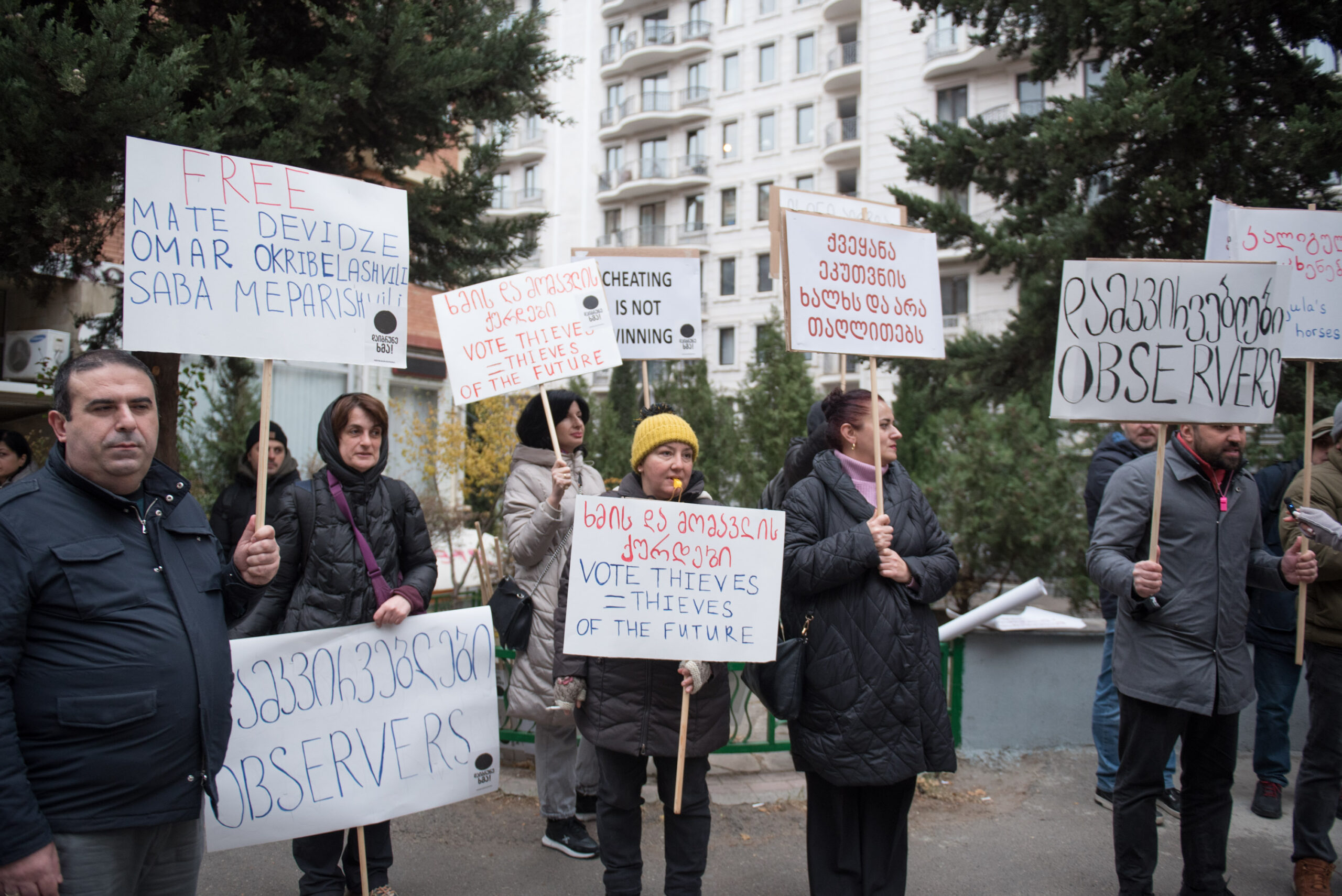
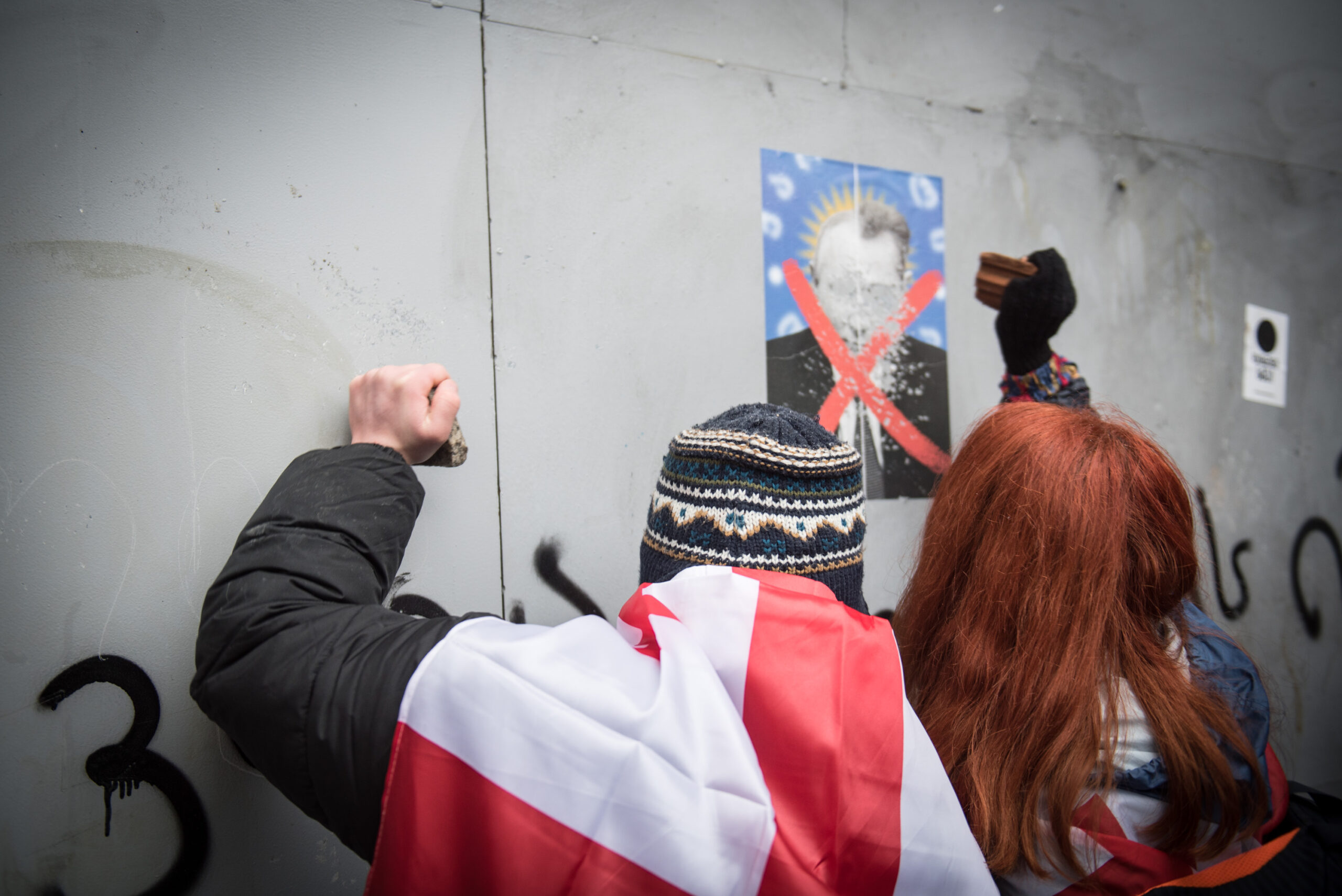
Nonetheless, Georgian Dream seemingly flouted constitutional and parliamentary regulations on 25 November by granting authority to the full parliamentary composition without awaiting the court’s decision.
The legal challenge at the Constitutional Court was initiated by President Salome Zourabichvili on 19 November, aiming to pave the way for a repeat parliamentary vote.
In the meantime, Zourabichvili advocated for the incumbent government, including the outgoing parliament and her own position as president, to retain interim authority until the results of the proposed re-election were determined. This was soon followed by a similar petition to the Constitutional Court by 30 outgoing opposition MPs.
[Read more: Georgian president disputes October vote in court and calls for provisional government ahead of redo]
Soon after the launch of the new parliament, Zourabichvili called it a ‘black Monday in Georgia’.
Black Monday in Georgia: Police & spetsnats guarding the doors behind which « GD slaves » are killing our Constitution and making a mockery of our Parliament.https://t.co/Hwrw3b2U05
— Salome Zourabichvili (@Zourabichvili_S) November 25, 2024
The Constitutional Court has yet to formally acknowledge either petition, neither accepting nor rejecting them. However, as Menabde clarified, this inaction created ‘no ambiguity’ regarding Georgian Dream’s lack of authority to proceed with launching the new parliament.
‘A case is considered challenged as soon as a lawsuit is filed, not when the admissibility of the case is determined, as claimed by Georgian Dream’, Menabde said.
Legal opinions similar to Menabde’s were widely echoed by other Georgian lawyers, including a prominent constitutional expert Vakhtang Khmaladze and Sandro Baramidze, a former deputy justice minister now with Transparency International — Georgia (TI Georgia).
Just hours before Georgian Dream’s controversial move, two major civil rights groups — TI Georgia and the Georgian Young Lawyers’ Association (GYLA) — warned that it would constitute a breach of Georgia’s constitution, followed by the International Society for Fair Elections and Democracy making the same claim.
TI Georgia described the plan a ‘straightforward and severe violation’ of the constitution.
Georgian Dream divvies up parliamentary roles behind iron barricades
On Monday, Georgian Dream confirmed the speaker, deputy speakers, and parliamentary committee chairs along with MPs, as protesters outside demonstrated by banging on the iron barricades installed at the front entrance of the building.

Of the 16 parliamentary committees, Georgian Dream appointed only one woman, Maia Bitadze, as a chair, assigning her to lead the Environmental Protection Committee. In April, Georgian Dream removed the mandatory gender quotas for electoral lists, providing further grounds for criticism from local opposition, civil groups, and the EU.
Earlier on Sunday, police issued a warning to protesters about the potential legal consequences of blocking access to the parliament’s side and rear entrances. Shortly afterward, officers secured those entrances for that evening and the following day, ahead of the official inauguration.
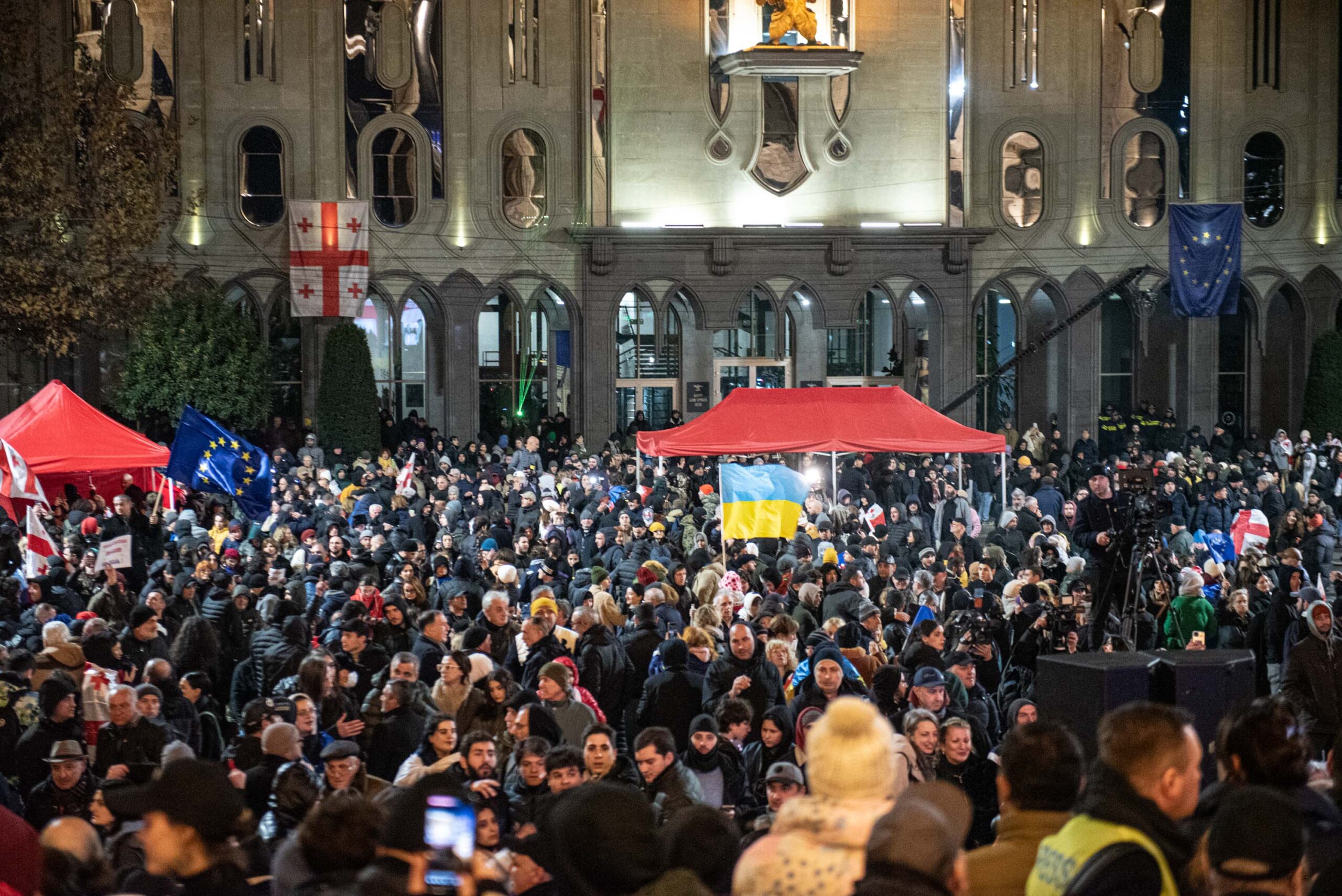
The overnight campout demonstration was a follow-up to a series of protest marches on Sunday. Representatives of the arts and creative industries marched from Rustaveli Avenue to Tbilisi State University, while students and academics gathered there after marching from Ilia State University.
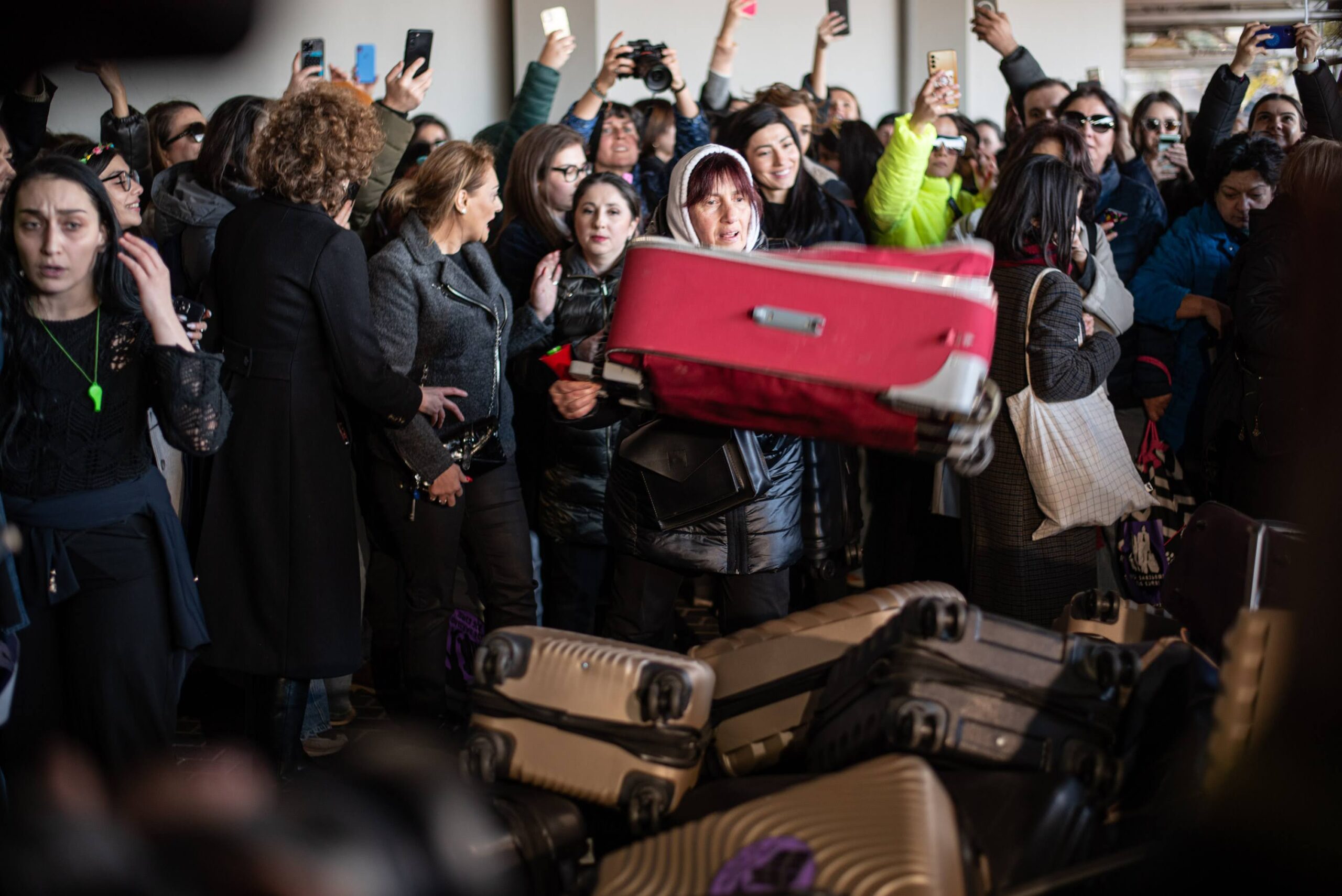
[Read on OC Media: Georgia’s students take their lectures to the streets]
Also on Sunday, there was a women’s march headed toward Ivanishvili’s residence. During the march, participants left suitcases bearing the message ‘I’ll stay, you leave’ to draw attention to forced labour migration, warning it would worsen as Georgia’s democracy continues to backslide.









